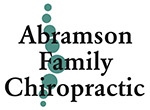Potential Long-Term Effects of High School Football.
Compared with middle-aged individuals who did not play contact sports or any sport in high school, those who played high school football were more likely to have sleep problems and to take medication for either chronic pain or headaches during the last year. However, the study did not find that former high school football players had an increased risk for depression, anxiety, anger, concentration problems, or memory problems. Clinical Journal of Sport Medicine, March 2022
Diet: Stay Hydrated.
Healthline reports the following benefits for remaining hydrated: helps maximize physical performance, significantly affects energy levels and brain function, may prevent headaches, may help relieve constipation, may help treat kidney stones, helps prevent hangovers, and can aid weight loss. Healthline, February 2022
Exercise: Lift Weights for About an Hour a Week.
A meta-analysis of 16 studies found that strength training for between 40-60 minutes a week is the optimal dose for reducing the risk for cardiovascular disease. BMJ, February 2022
Chiropractic: Is Standing Better for Guitar Players?
Examinations of 25 guitar players revealed that compared with standing, playing while sitting results in greater tilt of the torso, increased abduction of the right shoulder, higher flexion of the left shoulder, and a higher radial deviation of the left wrist, which may increase the risk for musculoskeletal pain in these areas. PLOS ONE, January 2022
Mental Attitude: Early Menopause May Increase Dementia Risk.
According to a study that looked at the long-term health histories of over 153,000 women, entering menopause before the age of 40 is associated with a 35% increased risk for dementia later in life when compared with women who begin menopause around age 50. Researcher Dr. Wenting Hao notes that estrogen can activate antioxidants in the brain that clear out proteins known to play a role in the development of dementia. American Heart Association, March 2022
Wellness/Prevention: Signs of a Stroke.
The American Stroke Association notes the following are signs and symptoms of a stroke: sudden numbness or weakness in the face, arm, or leg (especially on one side of the body); sudden confusion or trouble speaking or understanding speech; sudden vision issues in one or both eyes; sudden difficulty walking or dizziness; loss of balance or problems with coordination; and severe headache with no known cause. If you notice any of these sudden and severe signs of stroke, summon emergency services immediately. American Stroke Association, March 2022
Quote:
“Discussion is an exchange of knowledge; an argument an exchange of ignorance.” ~ Robert Quillen Chad Abramson, D.C. (425) 315-6262
To Receive The "Weekly Health Updates‚ Every Monday Via Email, Sign Up at www.WeeklyHealthUpdate.com - CODE: 98204ABRAM
This information should not be substituted for medical or chiropractic advice. Any and all health care concerns, decisions, and actions must be done through the advice and counsel of a health care professional who is familiar with your updated medical history.
